Past Events
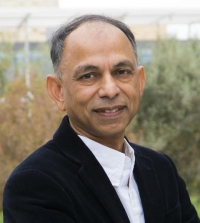
AI Legislation in the US: A Descriptive Analysis
Thursday, Oct. 16, 2025 | 12 – 1 p.m. | King Hall, Room 1301 | Streaming Link
Professor Hemant Bhargava will present his team’s ongoing research examining legislation in the U.S. states to govern the production and use of AI tools. As a first step, they built computational tools to facilitate the collection of over 1500 AI-related bills proposed over the last 5 years and to categorize them into a custom-developed taxonomy. Next, they extended the resulting structured database with additional elements of interest covering political, demographic, and economic factors. Finally, they are examining how these factors shape regulatory efforts and outcomes. This includes inter-state variations in the nature of AI legislative proposals, factors that affect successful passage, leader-follower relationships across states, and the nature of overlap in proposed rules.
Hemant Bhargava, UC Davis Graduate School of Management Distinguished Professor, Jerome and Elsie Suran Chair in Technology Management, Associate Dean for Academic Affairs, and Center for Analytics and Technology in Society Director, is an academic leader in economic modeling and analysis of technology-based business and markets. His research focuses on decision analytics and how the distinctive characteristics of technology goods influence specific elements of operations, marketing, and competitive strategy, and the implications they hold for competitive markets and technology-related policy. He has examined deeply these issues in specific industries, including platform businesses, information and telecommunications industries, healthcare, media and entertainment, and electric vehicles.
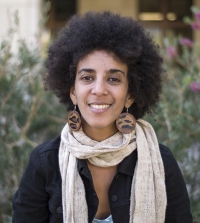
#TeamHuman: Community Rooted AI Research
Tuesday, Oct. 14, 2025 | 12 – 1 p.m. | King Hall, Room 1001 | Streaming Link
In the last few years, the quest to build so-called Artificial General Intelligence (AGI), an undefined system which seemingly can do any task under any circumstance, has captured the public's imagination. Those whose mission has been to build this system, like the leaders of OpenAI, Anthropic, Deepmind and others, discuss the utopia that will imminently come from building AGI, or the apocalypse that will be caused by it rendering humanity extinct. In this talk, Dr. Timnit Gebru discusses the history of the AGI movement, and its link to the 20th century eugenics movement, with those who "christened" the term AGI having the goal of replacing humans with a superior race they call "transhuman AGI." She outlines the harms the quest to build AGI has caused, including labor exploitation, centralization of power and the safety issues associated with building an unscoped system. She closes by giving examples of various movements to resist this trend, including artists' fight to preserve their humanity and dignity with the hashtag #TeamHuman. Dr. Gebru urges the machine learning community to focus on small, constrained, task-specific models, and presents some of the work from DAIR showing how this approach outperforms the one-size-fits-all trend to building machine learning based models.
Dr. Timnit Gebru founded the Distributed AI Research Institute (DAIR) in 2021 and is currently its Executive Director. She previously co-led Google’s Ethical AI research team, until co-publishing a journal article that critiqued the company’s AI ethics. DAIR publishes interdisciplinary research that brings a greater diversity of perspectives and lived experiences to envisioning the future of AI. Dr. Gebru also co-founded the nonprofit Black in AI and serves on the board of AddisCoder. Time magazine named Dr. Gebru one of the 100 most influential people in the world in 2022 and one of the 100 most influential people in AI in 2023. Her memoir/manifesto The View from Somewhere is scheduled to publish in fall 2026.
Co-sponsored by CILS and UC Davis AI Center in Engineering.
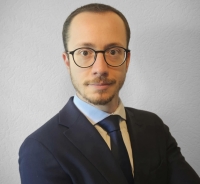
Fairness in the European Union Artificial Intelligence Act
Tuesday, Oct. 7, 2025 | 12 – 1 p.m. | King Hall, Room 1002 | Streaming Link
Professor Jérôme De Cooman will explore how the EU’s Artificial Intelligence Act incorporates elements of fairness. Contrary to other EU digital law instruments, the AI Act’s provisions contain only scarce references to fairness. Nevertheless, fairness concerns underlie the frameworks of non-discrimination and accountability or answerability in the AI Act. Both substantive and procedural fairness considerations may come into play in the application of the AI Act. The AI Act presents yet another illustration of fairness as a market-based outcome and as a procedural feature accompanying digital legislation.
Jérôme De Cooman is research professor at the University of Liege (Belgium), where he teaches intellectual property, competition, and data law, as well as EU law, (Big) Data and AI Applications. As part of his research, he pays particular attention to the economic impact of generative AI on the art market. He is also lecturer at the Brussels Study Center where he teaches a course on sectoral applications of AI, focused on competition law enforcement and the use of AI on judicial proceedings.
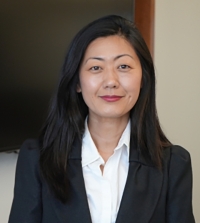
Ideas and Expression — What Really Is Free and What Isn’t? Observations from Entertainment Litigation
Thursday, Sept. 18, 2025 | 12 – 1 p.m. | King Hall, Room 1301 | In-Person Only
Generally, ideas have been thought of as free, whereas original expression is the stuff of copyright. But at least in certain circumstances under California law, ideas aren’t free. And we will increasingly encounter expressive works that are not protected by copyright because they were not authored by humans. Meanwhile, courts continue to grapple with the age-old idea/expression dichotomy, and whether and when they can decide that two works are not substantially similar as a matter of law, whether in protectable expression (in copyright infringement cases) or in idea (in idea submission cases). In this talk, Elaine K. Kim will share some observations about recent cases and trends in entertainment litigation over ideas and expression.
Elaine K. Kim is a partner at Mitchell Silberberg & Knupp LLP (MSK), a law firm with deep roots in Los Angeles’s entertainment industry since 1908. Elaine currently co-chairs MSK’s Litigation department, and previously co-chaired the firm’s Intellectual Property practice group. She specializes in intellectual property and entertainment matters, and counsels and represents studios, production companies, game developers, and other content creators. She has defended studios, producers, and writers against copyright infringement and idea submission claims, involving popular films and television shows — sometimes, claims asserted by multiple plaintiffs over the same property. She has also prosecuted copyright claims against infringers, and counsels clients on protecting their works. Elaine also serves as an officer and trustee of the Los Angeles Copyright Society, and as an executive committee member of the USC Gould School of Law Intellectual Property Institute.
Co-sponsored by CILS and KHIPLA.
Free Speech and/or Democracy? The NetzDG Discourse on Twitter
Wednesday, April 16, 2025 | 12 - 1 p.m. | King Hall, Rm 1301 | Livestream
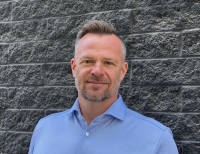
The European Union’s Digital Services Act (DSA) has recently taken up core elements of a controversially discussed German anti-hate speech law called the Netzwerkdurchsetzungsgesetz (NetzDG). The primary discourse about NetzDG was filled with fears of overblocking assuming that a law that was intended to reduce hate speech and protect minorities’ right to freedom of expression could eventually lead to censorship and threaten democracy. The EU’s decision to take up the NetzDG approach indicates a substantial deviation from existing US free speech values and from previous methods of regulating potentially illegal/harmful speech on social media platforms. For these reasons, the public NetzDG discourse is an ideal object of study with which to examine recent shifts in the EU’s digital policy agenda and the ways in which important stakeholders view these developments and position their concerns within public negotiation processes.
Jens Pohlmann is a faculty member in Science and Technology Studies at UC Davis. He received his Ph.D. in German Studies from Stanford University and his MA from the Humboldt-Universität zu Berlin. His research focuses on the public discourse about platform regulation and free speech, particularly on the discussion about an anti-hate-speech law called the Network Enforcement Act (NetzDG) in Germany and Section 230 CDA in the United States. Based on the examination of newspaper articles, websites, and social media posts, he studies the stakeholders and narratives that shape these conversations and analyzes how highly technical, specialist legal discourses concerning the regulation of online speech are disseminated and translated into discussions in broader society.
In this talk, I will present research on the discourse about NetzDG on Twitter/X based on a social network analysis that focuses on retweets as indicators of relevance and grouped users based on their retweet activity. I will discuss our findings regarding the most influential stakeholders in these debates and position our overall research project as a method to gain insights into the interested parties, their communicative strategies, and the “sociotechnical imaginaries” (Jasanoff 2025) that underpin their narratives. The discourse in question is a great example of a technological and legal expert topic that suddenly receives a lot of media attention and then gets translated and distributed for discussion in broader society. I am particularly interested in the communicative strategies that are (more or less successfully) applied in such dissemination processes.
Innovating Legal Contracting with Technology: A Conversation with Tiffany Bui Letourneau
Wednesday, March 12, 2025 | 12 - 1 p.m. | King Hall, Rm 1301 | Livestream
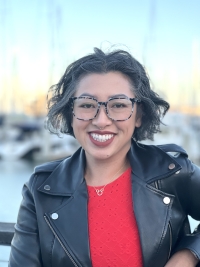
Join us for an exciting talk with Tiffany Bui LeTourneau, Head of Legal at Common Paper, as she shares her expertise in shaping the future of legal contracting. Tiffany has played an instrumental role in building legal frameworks at groundbreaking tech companies like Uber and Lime. Now, at Common Paper, she is revolutionizing the industry by combining open-sourced agreements with AI to streamline legal processes. Learn about her unique career path, the intersection of law and technology, and the future of legal compliance in fast-paced industries.
Tiffany has spent her entire career at the intersection of business and technology, counseling technology companies and start-ups on a variety of legal matters. Currently, she is serving as Head of Legal at Common Paper, where she is applying her experience to building the future of legal contracting. Through the establishment of open sourced, industry standard agreements combined with software and AI, Common Paper allows companies to move swiftly while maintaining accurate, structured data, thereby enabling nimble legal compliance. Prior to Common Paper, Tiffany was a Senior Director at Lime, where she built the transactions, product, privacy, and intellectual property functions. Before that, Tiffany was a founding member of Uber’s transactional legal team, where, among other career highlights, she enabled a nascent food delivery product to grow into what is now UberEats. She started her career in Big Law, working at Reed Smith and Gunderson Dettmer.
AI Year in Review and a Brief Look Ahead to 2025
Wednesday, Feb. 5, 2025 | 12 - 1 p.m. | King Hall, Rm 1002 | Livestream
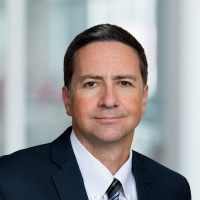
Join CILS for an insightful program reviewing the most significant legal developments in artificial intelligence over the past year and exploring what lies ahead in 2025. This session will focus on key AI-related legislation and regulatory updates at the state level (with a particular emphasis on California), examine federal developments, and provide a brief overview of notable international trends. Gain valuable insights into how evolving AI laws and policies may shape the future.
John Pavolotsky practices in the San Francisco office of Stoel Rives, LLP and focuses on data privacy, information security, and complex technology transactions. He advises a broad range of clients on general compliance, use of new(er) technologies such as AI, data incidents, and breach response. He also counsels clients on privacy, security, and intellectual property matters in M&A transactions. John is the immediate past chair of the Intellectual Property Section of the California Lawyers Association. John is a graduate of King Hall (2000), served on the King Hall Alumni Board (2013-2019), and taught Technology Transactions Law (2019) at King Hall.
CILS - The War on Social Media: Updates From the Front Line
Monday, Oct. 21, 2024 | 12 - 1 p.m. | King Hall, Rm 1301 | Recording Link
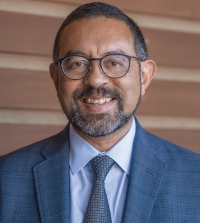
Join us for an insightful discussion led by Professor Ash Bhagwat on the global efforts to regulate social media platforms. The conversation will cover significant developments such as the laws enacted in Florida and Texas in response to Donald Trump’s deplatforming, the European Union’s Digital Services Act, the arrest of Telegram’s founder in France, and Brazil’s recent ban on X (formerly Twitter). Professor Bhagwat will also discuss recent legal developments relevant to those regulatory initiatives and explore how different jurisdictions are navigating the complex landscape of social media regulation.
Ash Bhagwat is the Boochever and Bird Endowed Chair for the Study and Teaching of Freedom and Equality and a Distinguished Professor of Law at UC Davis, having joined the faculty in 2011 after seventeen years at UC Law San Francisco. A summa cum laude graduate of Yale University, Professor Bhagwat earned his law degree from The University of Chicago, where he served as Articles Editor of the University of Chicago Law Review. He clerked for Judge Richard A. Posner of the U.S. Court of Appeals for the Seventh Circuit and Justice Anthony M. Kennedy of the U.S. Supreme Court. He practiced appellate and regulatory law in Washington, D.C., before transitioning to academia.
He is the author of The Myth of Rights (Oxford University Press, 2010) and Our Democratic First Amendment (Cambridge University Press, 2020), and his work has been published in leading law journals such as the Yale Law Journal and Supreme Court Review. Professor Bhagwat has also served on the Board of Governors of the California Independent System Operator and is a member of the American Law Institute.
CILS - "Data as Public Goods or Private Properties?: A Way Out of the Conflict Between Data Protection and Free Speech"
Wednesday, Sept. 4, 2024 | 12 - 1 p.m. | King Hall, Rm 1301 | Recording Link
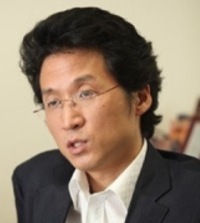
The relationship between data and speech is often overlooked. Transferring data to another person is speech. Collecting data implicates the right to know-the alter ego of freedom of speech. Using data for a new purpose is research, as research involves finding new meanings behind pre-existing data. Once these relationships are recognized, various conflicts between data protection laws and freedom of speech are not surprising. After all, data protection laws give data subjects (persons that the data refer to) ownership-like control over transferring, collecting, and researching personal data. As one example of this conflict, data protection law has been invoked under the banner of the “right to be forgotten” to restrict access to data that has been made publicly available. Also, the recent controversy around the TikTok bans brought into urgent focus the use of data protection law as an alternative method of protecting American users’ data. Through this talk, we will try to helicopter us out of the conflict to explore how new approaches to data protection affect new legislative trends, including the California Consumer Privacy Act, and how we should approach the latest threats to privacy, such as the use of facial recognition technology in public places.
Professor Kyung Sin Park teaches at Korea University Law School. He is the co-founder and director of Open Net, the premier digital rights advocacy organization in Korea. Professor Park served as a Commissioner of the Korean Communication Standards Commission, a Presidentially appointed Internet content regulation body (2011-2014). He also served as a board member of Global Network Initiatives, a self-regulatory coalition of global platforms and telecommunication network operators, and as a member of the Advisory Network to Freedom Online Coalition, an inter-governmental body of countries committed to Internet freedom. Until 2020, he served as a member of the High-Level Panel on Media Freedom, a group of legal experts advising an inter-governmental body committed to media freedom. He is one of the leading authors of the Necessary and Proportionate Principles on Communications Surveillance and the Manila Principles for Intermediary Liability. Professor Park also served as a Member of the National Media Commission, a Parliament-appointed advisory body on newspaper-broadcasting co-ownership bans and other media and Internet regulations (2010). Professor Park graduated from Harvard University (Physics) and UCLA Law School (JD). He has served as a Visiting Professor of Law at UC Davis Law School (2017, 2024), UCLA (2024), and UC Irvine (2017, 2023, 2024).
Transatlantic Tech Exchange Roundtable with Members of the European Parliament, co-sponsored by CILS, the California International Law Center (CILC), the German Marshall Fund, and UC Davis School of Law
Friday, March 22, 2024 | 2 – 5 p.m. | King Hall, Faculty Workroom
The Transatlantic Tech Exchange Roundtable will provide an opportunity for King Hall faculty to share cutting-edge research with Members of the European Parliament and representatives of civil society groups. Topics to be addressed include artificial intelligence, online content moderation, the Internet of Things, and digital privacy. The Roundtable is arranged in conjunction with the California International Law Center (CILC), the German Marhsall Fund, and UC Davis School of Law.
Speakers:

Beth Greenwood, Associate Dean for International Programs

Peter Lee, Martin Luther King Jr. Professor of Law; Director, Center for Innovation, Law, and Society

Ashutosh Bhagwat, Boochever and Bird Endowed Chair for the Study and Teaching of Freedom and Equality and Distinguished Professor of Law

Stacy-Ann Elvy, Professor of Law and Martin Luther King, Jr. Hall Research Scholar

Lydia de la Torre, Visiting Lecturer and Board Member, California Privacy Protection Agency
Discussants:

Miapetra Kumpula-Natri, Member of the European Parliament (Finland)

Dragos Tudorache, Member of the European Parliament (Romania)

Petar Vitanov, Member of the European Parliament (Bulgaria)

Zeljana Zovko, Member of the European Parliament (Croatia)
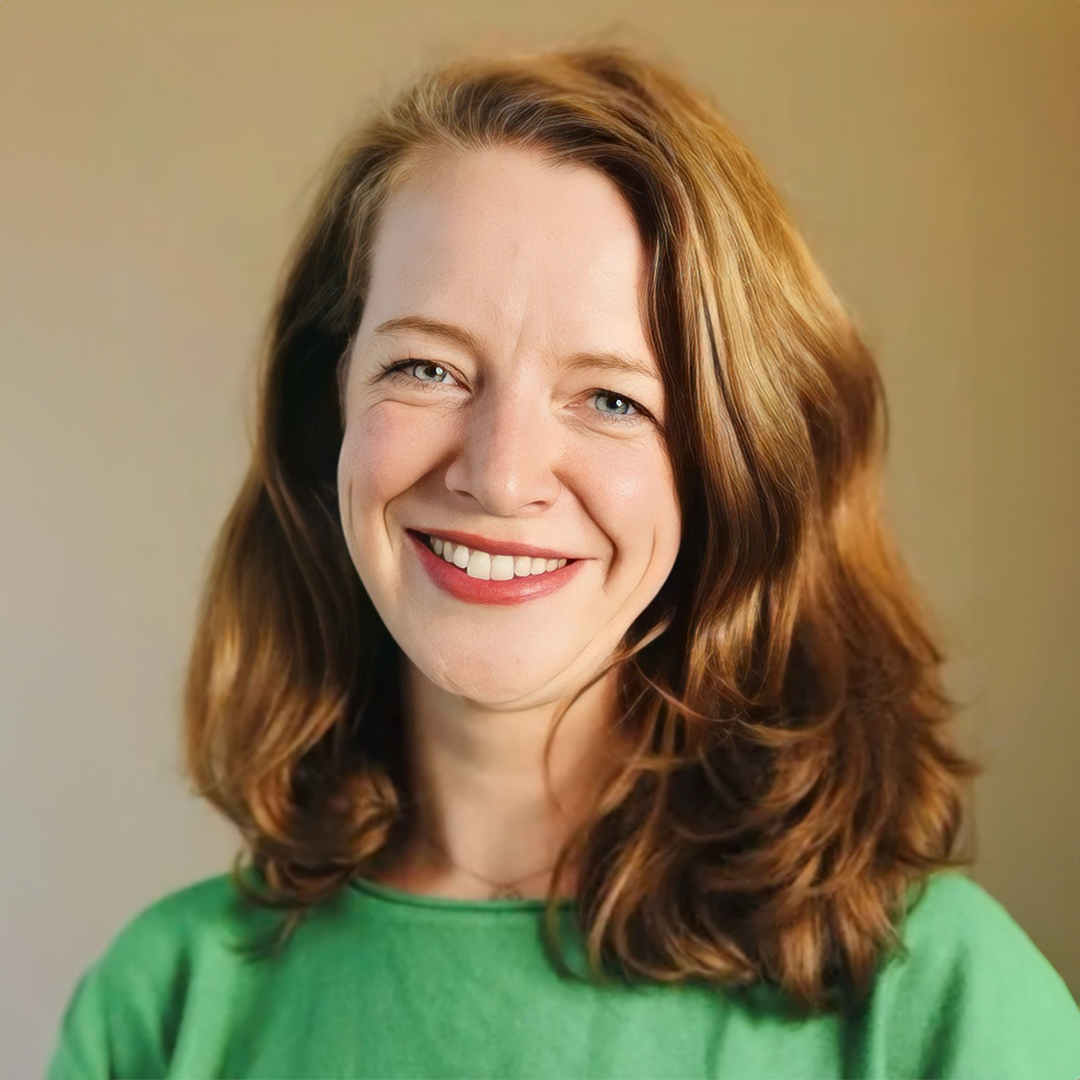
Astrid Ziebarth, German Marshall Fund
CILS Presents Professor Carl Shapiro, UC Berkeley: Evolution of the Merger Guidelines: Is This Fox Too Clever by Half?
Monday, March 18, 2024 | 12 - 1 PM | King Hall, Room 1301 | Livestream
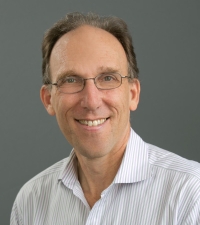
Carl Shapiro is a Distinguished Professor of the Graduate School at the Haas School of Business and the Department of Economics at the University of California at Berkeley. He also is the Transamerica Professor of Business Strategy Emeritus at the Haas School of Business. Shapiro has published extensively in the areas of industrial organization, competition policy, patents, the economics of innovation, and competitive strategy. Shapiro had the honor of serving as a Member of the President’s Council of Economic Advisers during 2011-12. He was the Deputy Assistant Attorney General for Economics at the Antitrust Division of the U.S. Department of Justice during 2009-2011, a position he also held during 1995-96. Shapiro also has testified as an expert witness on behalf of the government in a number of high-profile antitrust cases. His publications and curriculum vitae can be found at https://faculty.haas.berkeley.edu/shapiro/.
His talk will focus on the 2023 Merger Guidelines, which make some notable improvements over the 2010 Horizontal Merger Guidelines. They give greater emphasis to the idea that predicting the competitive effects of a proposed merger is inherently difficult and that to block a merger the government need only show that the merger may substantially lessen competition, not that it will do so. They also give greater emphasis to dynamic competition and innovation, especially regarding acquisitions of potential entrants, and they add useful material on multi-sided platforms. However, the treatment of market definition in the 2023 Merger Guidelines is likely to weaken horizontal merger enforcement by demoting the role of the hypothetical monopolist test, which is used to define markets for the purpose of measuring market shares, and by removing extensive material from prior guidelines which explained why market shares measured in narrower markets tend to be more informative than market shares measured in broader markets. The 2023 Merger Guidelines lower the market concentration thresholds that trigger a presumption by the antitrust enforcement agencies that a merger may substantially lessen competition, but the enforcement data suggest that change will have little effect in practice. The 2023 Merger Guidelines also are likely to lead to less effective deterrence of harmful mergers because they are not well targeted at the mergers most likely to substantially lessen competition.
CILS Presents Professor Lydia de la Torre, UC Davis Law and Vinhcent Le, The Greenlining Institute
Monday, February 5, 2024 | 12 - 1 PM | King Hall, Room 1301 | Livestream
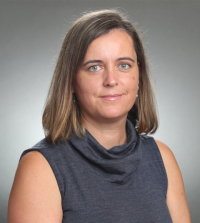
Professor Lydia de la Torre is a dual-qualified attorney (US/EU) and teaches privacy, data protection, and A.I. courses at UC Davis Law and U.C. Law San Francisco (formerly UC Hastings).
Prof. de la Torre is the founding partner of the teaching law firm Golden Data Law (GDL). GDL serves clients in the not-for-profit sector, and its mission is to mentor a diverse and inclusive group of law students and recent grads so that they can grow into solid ethical professionals. Prior to her appointment, Prof. de la Torre served as an of-counsel to Squire Patton Boggs and had in-house counsel roles at several multinational organizations.
Prof. de la Torre was appointed to the CPPA Board by the California Senate President pro Tempore Toni G. Atkins in March 2021 and served on the Advisory Board of Californians for Consumer Privacy (CPPA) during the Prop 24 ballot campaign. The CPPA is a California state government agency created by the California Privacy Rights Act of 2020 (CPRA) as the first dedicated privacy regulator in the United States.
She is an international expert in data protection issues and the European Union's approach to regulating data and A.I. in particular. Her background brings unique experience-based knowledge to the CPPA Board.

As Senior Legal Counsel of Tech Equity, Vinhcent Le (he/him/his) leads Greenlining’s work to close the digital divide, protect consumer privacy, ensure algorithms are fair and that technology builds economic opportunity for communities of color. In this role, Vinhcent helps develop and implement policies to increase broadband affordability and digital inclusion as well as bring transparency and accountability to automated decision systems. Vinhcent also serves on several regulatory boards including the California Privacy Protection Agency. Vinhcent received his J.D. from the University of California, Irvine School of Law and a B.A. in Political Science from the University of California, San Diego. Prior to Greenlining, Vinhcent advocated for clients as a law clerk at the Public Defender’s Office, the Office of Medicare Hearing and Appeals and the Small Business Administration.
CILS Presents UC Davis and Jindal Global Law School Online Symposium: Navigating the Promise and Perils of Innovation: Law and Technology at a Crossroads
Friday, January 19, 2024 | 7:45 a.m. - 10 a.m. PT | 9:15 p.m. – 11:30 p.m. India | Program | Recording
Speakers

Avirup Bose, Associate Professor and Assistant Director, Centre for International Trade and Economics Laws, Jindal Global Law School

Krishna Deo Singh Chauhan, Associate Professor, Jindal Global Law School

Stacy-Ann Elvy, Professor of Law and Martin Luther King, Jr. Hall Research Scholar

Indranath Gupta, Professor and Dean of Research & Controller of Examinations, Jindal Global Law School

Suvrajyoti Gupta, Associate Professor and Assistant Director, Centre for Alternative Dispute Resolution, Jindal Global Law School

Peter Lee, Martin Luther King Jr. Professor of Law; Director, Center for Innovation, Law, and Society

Albert Lin, Martin Luther King Jr. Professor of Law

Elizabeth Joh, Martin Luther King Jr. Professor of Law
CILS - Professor Zubair Shafiq, Dept. of Computer Science, UC Davis
Monday, November 13, 2023 | 12 - 1 PM | King Hall, Rm 1301 | Recording Link
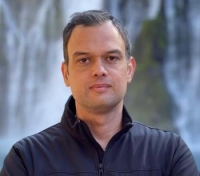
Zubair Shafiq is an associate professor of computer science at University of California, Davis.
He received his Ph.D. from Michigan State University in 2014. His research focuses on making the Internet private, secure, and performant using empirically grounded measurement and modeling methods. He is a recipient of Chancellor's Fellowship (2022-2023), Dean's Scholar Award (2020), NSF CAREER Award (2018), Andreas Pfitzmann PETS Best Student Paper Award (2018), ACM IMC Best Paper Award (2017), IEEE ICNP Best Paper Award (2012), Fitch-Beach Outstanding Graduate Research Award (2013), and the Dean's Plaque of Excellence for undergraduate research (2007, 2008).
CILS - Cindy Dole '09, Associate General Counsel at Samsung Catalyst Fund
Monday, October 16, 2023 | 12 - 1 PM | King Hall, Rm 1301 | Recording Link

Cindy Dole '09 is an Associate General Counsel & Corporate Secretary at the Samsung Catalyst Fund, Samsung Electronics’ evergreen multi-stage venture capital fund that invests in deep-tech infrastructure and data-enabled platforms. Investments span across multiple domains including data center and cloud, artificial intelligence, networking and 5G, automotive, sensors, quantum computing and beyond.
Prior to joining Samsung, she was an attorney at Morgan Lewis, where she worked with technology clients on intellectual property issues and strategy in cross-border and domestic transactions involving mergers and acquisitions, joint ventures, initial public offerings, and venture capital financing. Before becoming an attorney, she worked in marketing communications at tech companies.
Cindy holds a BA from UCLA and a JD from UC Davis.
CILS - "The Genome Defense and the Civil Rights Case Against Gene Patenting in America" with Professor Jorge Contreras, University of Utah
Thursday, September 21, 2023 | 12 - 1 PM | King Hall, Rm 1301 | Recording Link

Jorge L. Contreras is the James T. Jensen Endowed Professor for Transactional Law and Director of the Program on Intellectual Property and Technology Law at the University of Utah S.J. Quinney College of Law, with a secondary appointment in the Department of Human Genetics, University of Utah School of Medicine. Professor Contreras’s research focuses on intellectual property, technical standards, antitrust law and science policy. He is the editor or author of twelve books and more than 150 scholarly articles and chapters. During his career he has served on advisory committees of the US National Institutes of Health, the National Academies of Science, and as Co-Chair of the National Conference of Lawyers and Scientists. Professor Contreras’s award-winning book, The Genome Defense: Inside the Epic Legal Battle to Determine Who Owns Your DNA (NY: Hachette/Algonquin, 2021), which has received praise from media outlets from the New York Times and Wall St. Journal to Nature and Law360, describes the landmark civil rights litigation that ended gene patenting in America. He is a graduate of Harvard Law School (JD) and Rice University (BSEE, BA), and an elected member of the American Law Institute.
Program overview:
When attorney Chris Hansen learned that the U.S. government was issuing patents for human genes to biotech companies, his first thought was, How can a corporation own what makes us who we are? Then he discovered that women were being charged exorbitant fees to test for hereditary breast and ovarian cancers, tests they desperately needed—all because Myriad Genetics had patented the famous BRCA genes. So he sued them.
Jorge L. Contreras, one of the nation’s foremost authorities on human genetics law, has devoted years to investigating the groundbreaking civil rights case known as AMP v. Myriad. In The Genome Defense Contreras gives us the view from inside as Hansen and his team of ACLU lawyers, along with a committed group of activists, scientists, and physicians, take their one-in-a-million case all the way to the U.S. Supreme Court. Contreras interviewed more than a hundred key players involved in all aspects of the case—from judges and policy makers to ethicists and genetic counselors, as well as cancer survivors and those whose lives would be impacted by the decision—expertly weaving together their stories into a fascinating narrative of this pivotal moment in history.
The Genome Defense is a powerful and compelling story about how society must balance scientific discovery with corporate profits and the rights of all people.
Professor Colleen V. Chien, Santa Clara University School of Law (Virtual)
Thursday, April 13, 2023 | 12 - 1 PM | King Hall, Viewing in Rm 1301 & via Zoom | Recording Link
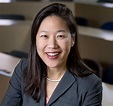
Colleen Chien is Professor at Santa Clara University School of Law where she teaches, mentors students, and leads multi-disciplinary teams to conduct empirical research on patents, intellectual property, and the criminal justice system. From 2013-2015, she served in the Obama White House as the Senior Advisor on Intellectual Property and Innovation to the Chief Technology Officer, working on a broad range of patent, copyright, technology transfer, open innovation, and other issues. Professor Chien is internationally known for her research and writing on domestic and international patent law and policy issues. She has testified on multiple occasions before both houses of Congress, the US Patent and Trademark Office, the Department of Justice, and the Federal Trade Commission and frequently lectures at national law conferences. She has published several in-depth empirical studies, including of patent prosecution in the US and abroad, patent examination trends, inequality and innovation, patent litigation, and patent-assertion entities (PAEs). In the realm of criminal justice, she is the founder of the Paper Prisons initiative (paperprisons.org), a multi-disciplinary research initiative of over 20 collaborators, partners, and affiliates that uses research, technology tools, and empathy to boost the employment and other outcomes of people who have had contact with the criminal justice system by documenting and narrowing the “second chance gap,” between those eligible for and receiving second chance relief. In 2019, she was Justin D’Atri Visiting Professor of Law at Columbia Law School and a visiting Professor at the University of Chicago Law School.
Professor Chien is among the top 20-cited intellectual property and cyberlaw scholars in the US and is a recipient of the prestigious American Law Institute’s Early Career Medal, awarded every other year to one or two outstanding early-career law professors; the Intellectual Property Vanguard Award (by the California Bar Association) and the Eric Yamamoto Emerging Scholar award (by the Conference of Asian Pacific American Law Faculty); she has also been named one of the 50 Most Influential People in Intellectual Property in the World (by Intellectual Asset Magazine) and a Woman of Influence and a Tech Law Trailblazer (by the National Law Journal and the Recorder) for her work devising “the Second Chances and Empathy Hackathon” and work on executive agency policy pilots.
Corynne McSherry, Electronic Frontier Foundation
Thursday, March 23, 2023 | 12 - 1 PM | King Hall, Rm 1301 & via Zoom | Recording Link
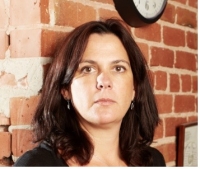
Corynne McSherry is the Legal Director at EFF, specializing in intellectual property, open access, and free speech issues. Her favorite cases involve defending online fair use, political expression, and the public domain against the assault of copyright maximalists. As a litigator, she has represented Professor Lawrence Lessig, Public.Resource.Org, the Yes Men, and a dancing baby, among others, and one of her first cases at EFF was In re Sony BMG CD Technologies Litigation (aka the "rootkit" case). She was named one of California's Top Entertainment Lawyers and was also named AmLaw's "Litigator of the Week" for her work on Lenz v. Universal. Her policy work includes leading EFF’s effort to fix copyright (including the successful effort to shut down the Stop Online Piracy Act, or SOPA), promote net neutrality, and promote best practices for online expression. She testified before Congress about the Digital Millennium Copyright Act and Section 230. Corynne comments regularly on digital rights issues and has been quoted in a variety of outlets, including NPR, CBS News, Fox News, the New York Times, Billboard, the Wall Street Journal, and Rolling Stone. Prior to joining EFF, Corynne was a litigator at the law firm of Bingham McCutchen, LLP. Corynne has a B.A. from the University of California at Santa Cruz, a Ph.D from the University of California at San Diego, and a J.D. from Stanford Law School. While in law school, Corynne published Who Owns Academic Work?: Battling for Control of Intellectual Property (Harvard University Press, 2001).
Please contact Nina Bell at nbell@ucdavis.edu with any questions.
Professor Jennifer Urban, UC Berkeley Law and Chair, California Privacy Protection Agency Board
Thursday, February 16, 2023 | 12 - 1 PM | King Hall, Rm 1301 | Recording Link
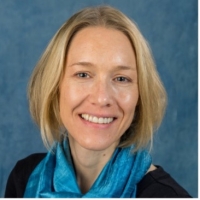
Jennifer M. Urban was appointed by California Governor Gavin Newsom in March 2021 to be the inaugural Chair of the California Privacy Protection Agency Board. Urban is a Clinical Professor of Law at the University of California, Berkeley School of Law, where she is Director of Policy Initiatives at the Samuelson Law, Technology & Public Policy Clinic. Prior to joining Berkeley Law, she founded and directed the USC Intellectual Property & Technology Law Clinic at the University of Southern California, Gould School of Law. Before that, she was the Samuelson Clinic’s first fellow and an attorney with the Venture Law Group in Silicon Valley. She holds a B.A. in biological science (concentration in neurobiology and behavior) from Cornell University and a J.D. (with law and technology certificate) from Berkeley Law.
Professor Urban’s research considers how values such as free expression, freedom to innovate, and privacy are mediated by technology, the laws that govern technology, and private-ordering systems. Many of her recent papers are available on the Social Science Research Network.
Professor Urban's clinic students represent clients in numerous public interest cases and projects at the intersection of technological change and societal interests such as civil liberties, innovation, and creative expression. Recent clinic projects include work on individual privacy rights, copyright and free expression, artists’ rights, digital libraries, free and open source licensing, government surveillance, the “smart” electricity grid, biometrics, and defensive patent licensing.
CILS - "Innovation, Law, and Society at King Hall and Beyond"
Monday, January 30, 2023 | 12 - 1 PM | King Hall, Rm 1001 | Recording Link

This will be the launch event for the Center for Innovation, Law, and Society with opening remarks by Dean Kevin Johnson and featuring Director Professor Peter Lee along with fellow core CILS faculty Professors Al Lin, Lisa Ikemoto, Stacy-Ann Elvy, and Elizabeth Joh discussing hot topics in their respective fields.
The Center for Innovation, Law, and Society (CILS) seeks to explore the legal and social implications of innovation, science, and technology. The center builds upon the work of UC Davis School of Law faculty members examining numerous fields at the intersection of law and innovation, including artificial intelligence, bioethics, data privacy, environmental law, health law, intellectual property, and social media. The center hosts leading speakers who share their insights on the opportunities and challenges of new innovations and the role of law in shaping their development and operation.
In exploring these issues, CILS adopts a conscientiously broad conception of “law and innovation.” While the center certainly addresses legal dimensions of new technologies, it also considers nontechnological innovations, such as creative works, novel social practices, and business innovations.
